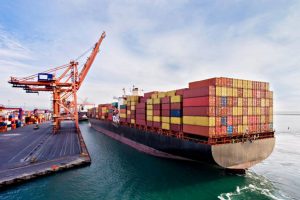Prime Minister Narendra Modi on Friday said that the agriculture sector is facing several challenges globally, and pointing out that supply chain disruption caused by pandemic has worsened due to the impact of geopolitical tensions, he urged agriculture ministers from the G20 countries to deliberate on how to undertake collective action to achieve global food security.
“We must find ways to strengthen global fertiliser supply chains,” Prime Minister Modi said in a video message to the ongoing G20 Agriculture Ministers’ Meeting in Hyderabad. A three-day meeting of Agriculture Ministers under the Agriculture Working Group (AWG) of the G-20 began in Hyderabad on June 15. “Agriculture is at the heart of human civilisation and as agricultural ministers, your task is not simply that of handling one sector of the economy, you hold a big responsibility for the future of humanity,” the prime minister said.
Advertisement
The Prime Minister said climate change has been causing extreme weather events more often and these challenges particularly are felt most by the Global South.
“In the Global South, agriculture accounts for almost 30 per cent of the GDP, and over 60 percent of jobs. And today, this sector faces several challenges. The supply chain disruptions caused by the pandemic have been worsened by the impact of geo-political tensions. Climate change is causing extreme weather event more and more frequently,” PM Modi said.
Further in this message, he said in the most vital sector of agriculture, India’s policy is a fusion of ‘back to basics’ and ‘march to future’. India, said PM Modi, is promoting natural and technology-enabled farming and said the country’s farmers are staying away from synthetic fertilizers or pesticides.
“Their (farmers) focus is on rejuvenating the mother earth, protecting soil health, producing ‘per drop, more crop’, and promoting organic fertilizers and pest management solutions. At the same time, our farmers are proactively using technology to boost productivity. They are generating and using solar power on their farms,” PM Modi said.
The Prime Minister said the member countries must find ways to build sustainable and inclusive food systems.
“We must find ways to strengthen global fertilizer supply chains. At the same time, adopt agricultural practices for better soil health, crop health and yield. Traditional practices from different parts of the world may inspire us to develop alternatives for regenerative agriculture. We need to empower our farmers with innovation and digital technology. We must also make solutions affordable for small and marginal farmers in the Global South.”
“There is also an urgent need to reduce agricultural and food waste,” PM Modi said in his video message to the G20 Agriculture Ministers’ Meeting.
PM Modi also explained the benefits of millets and how such Nutri cereals have been part of India’s dietary practice. The year 2023 is being celebrated as the International Year of Millets.
“These superfoods are not only healthy to consume, but they also help raise the incomes of our farmers by using less water, needing less fertilizer, and being more pest-resistant. Of course, Millets are not new. They have been cultivated for thousands of years.”
PM Modi added markets and marketing had influenced our choices so much that one forgot the value of traditionally grown food crops.
Millets were traditionally consumed, but due to the push given to food security through Green Revolution in the 1960s, millets were less consumed and almost forgotten.
“Let us embrace Shri Anna Millets as the food of our choice. As part of our own commitment, India is developing an Institute of Millets Research as a Centre of Excellence – for sharing best practices, research and technologies in millets,” PM Modi told the foreign delegates who participated in the crucial G20 meet.
The government of India under Prime Minister Narendra Modi spearheaded the United Nations General Assembly (UNGA) resolution for declaring the year 2023 as the International Year of Millets and the proposal of India was supported by 72 countries.
Millet is a common term for categorising small-seeded grasses that are often called Nutri-cereals. Some of them are sorghum (jowar), pearl millet (bajra), finger millet (ragi), little millet (kutki), foxtail millet (kakun), proso millet (cheena), barnyard millet (sawa), and kodo millet (kodon).
Besides being climate resilient, millet grains are rich sources of nutrients like carbohydrates, protein, dietary fibre, and good-quality fat; minerals like calcium, potassium, magnesium, iron, manganese, zinc and B complex vitamins. Also, millet production is not dependent on the use of chemical fertilizers.
In his message to the G20 Agriculture Ministers’ Meeting in Hyderabad, the Prime Minister said that India’s G20 priorities in agriculture focus on “healing our ‘One Earth’, creating harmony within our ‘One Family’ and giving hope for a bright ‘One Future’.”
“I am happy to learn that you are working on two concrete outcomes. The ”Deccan High level Principles on Food Security and Nutrition”; and, the ”MAHARISHI” initiative for Millets and other grains. The support to these two initiatives, is a statement in support for inclusive, sustainable, and resilient agriculture,” Prime Minister Modi said wishing the delegates success in their deliberations.
Over 200 delegates from G20 member countries, invited countries and International Organizations are participating in the three-day Agriculture Working Group (AWG) Ministerial Meeting of G20 event in Hyderabad.
Agriculture Ministers from various countries and the Director Generals from International Organizations are participating in the event.
Previously, Agriculture and Farmers Welfare Minister Narendra Singh Tomar in a press conference said that agriculture priority sectors will be discussed in the meeting. These areas form the basis of this year’s Agriculture Working Group.











